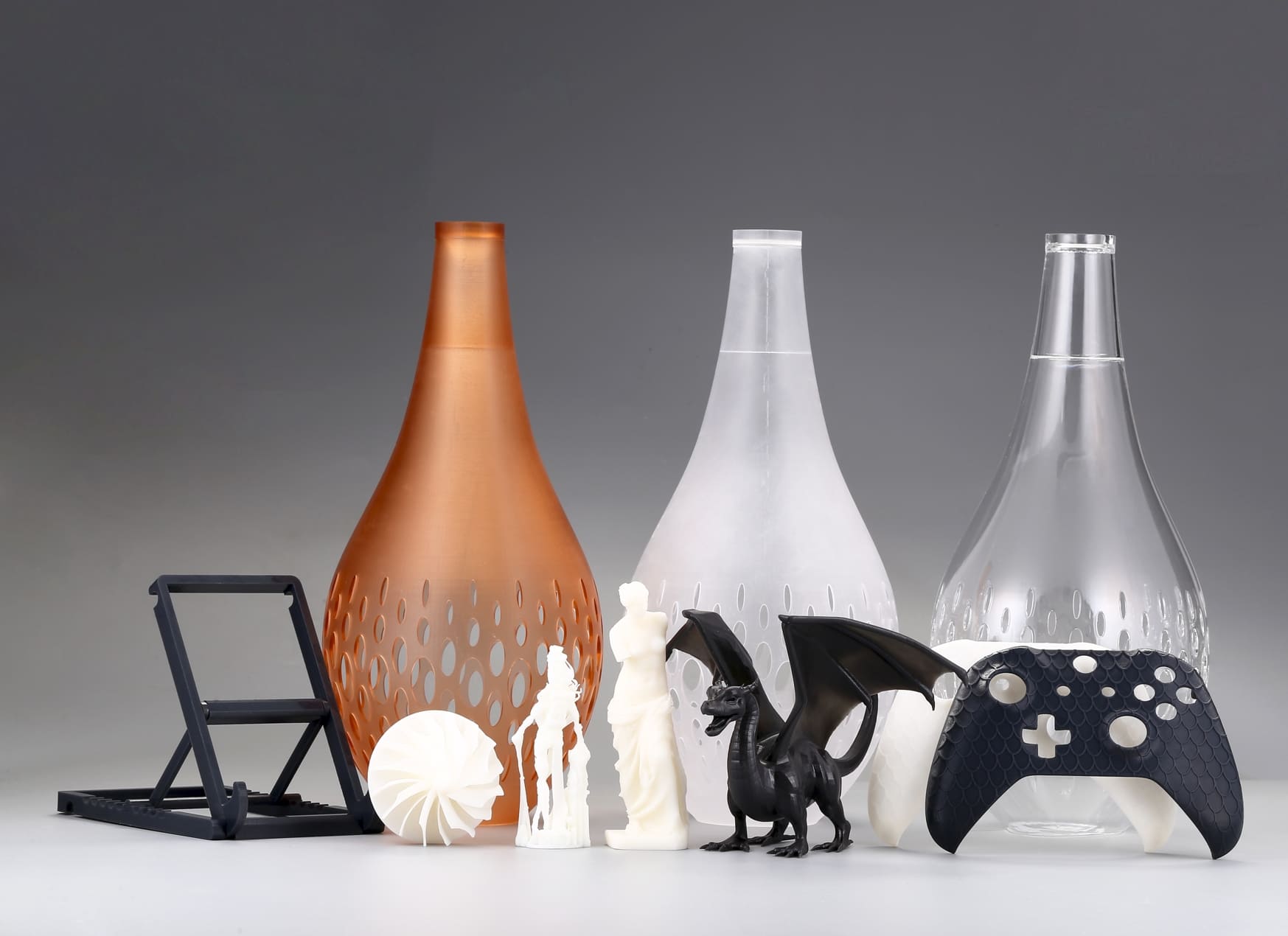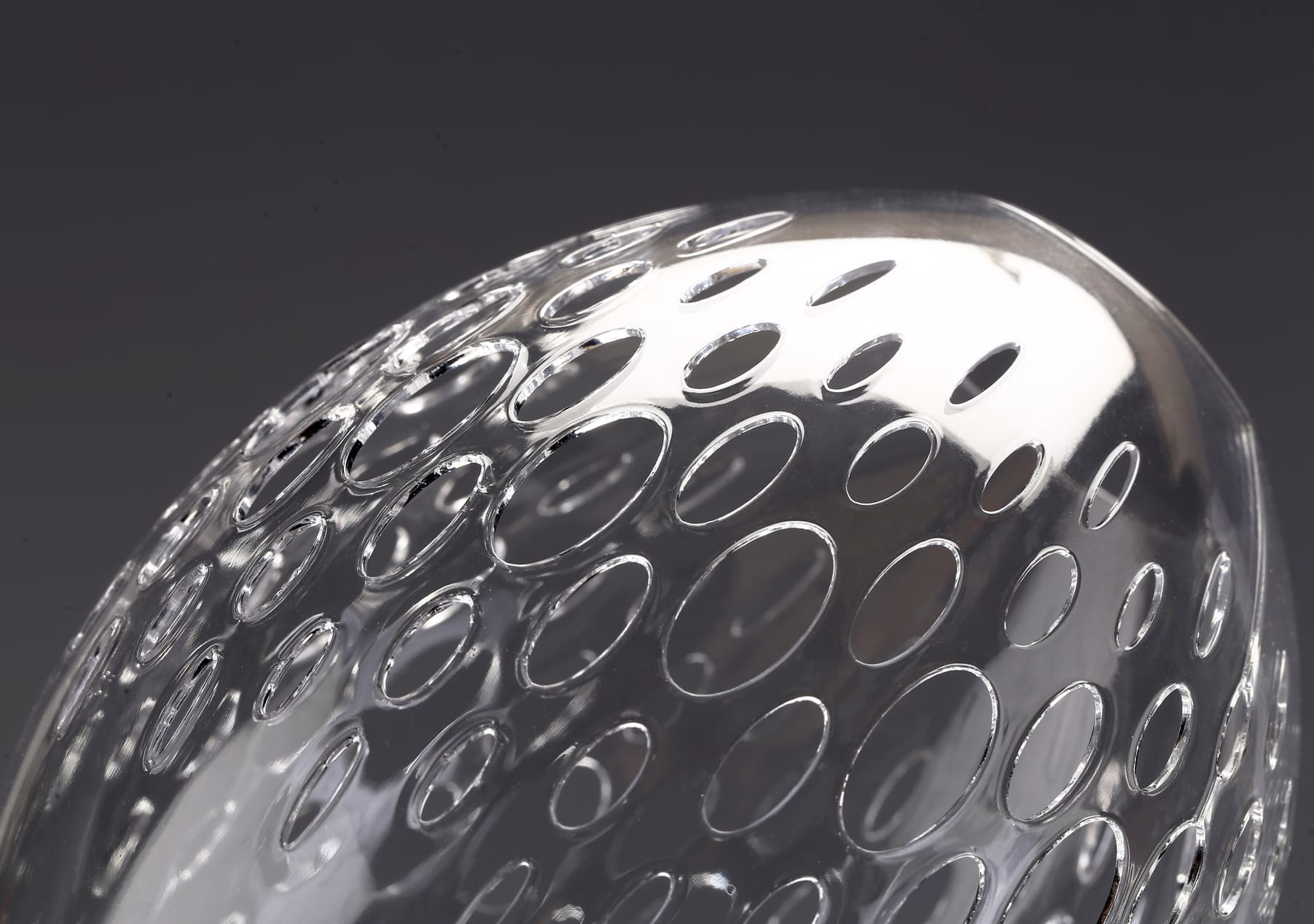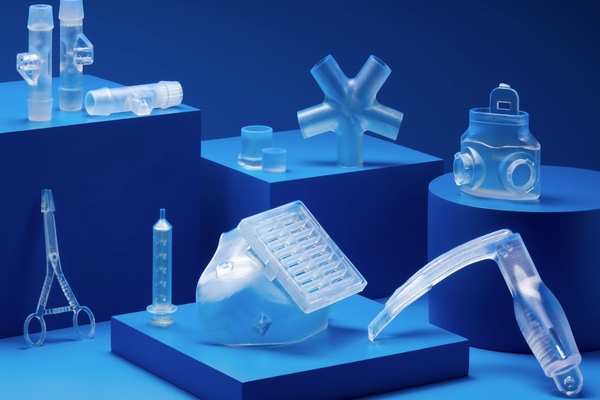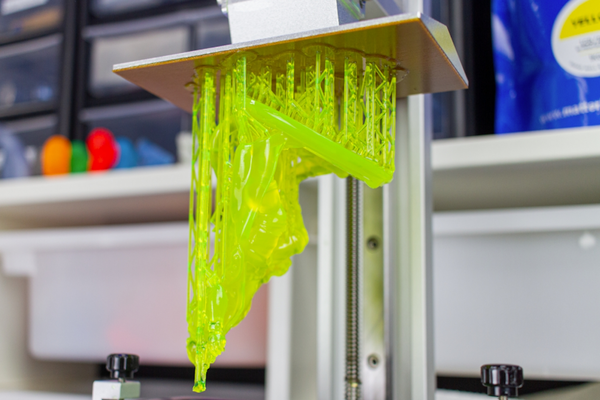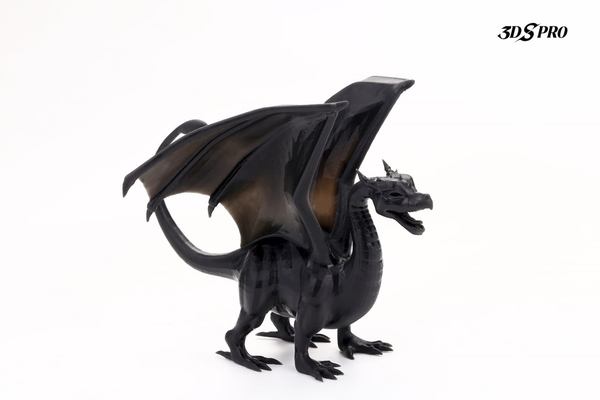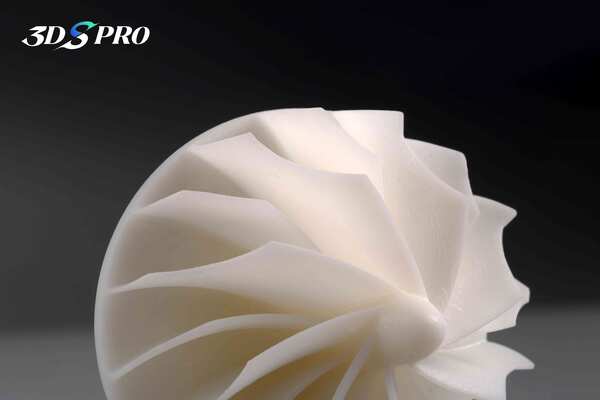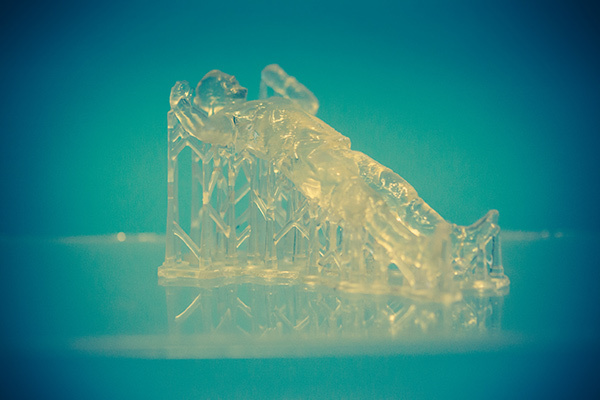What is the glowing resin for 3D printing?
Glow-in-the-dark UV resin is a specialized photopolymer material designed for use in UV-based 3D printing technologies, such as stereolithography (SLA) and digital light processing (DLP). Unlike standard resins, the glowing resin contains phosphorescent additives, typically strontium aluminate or zinc sulfide, that enable 3D printed objects to absorb and emit light.
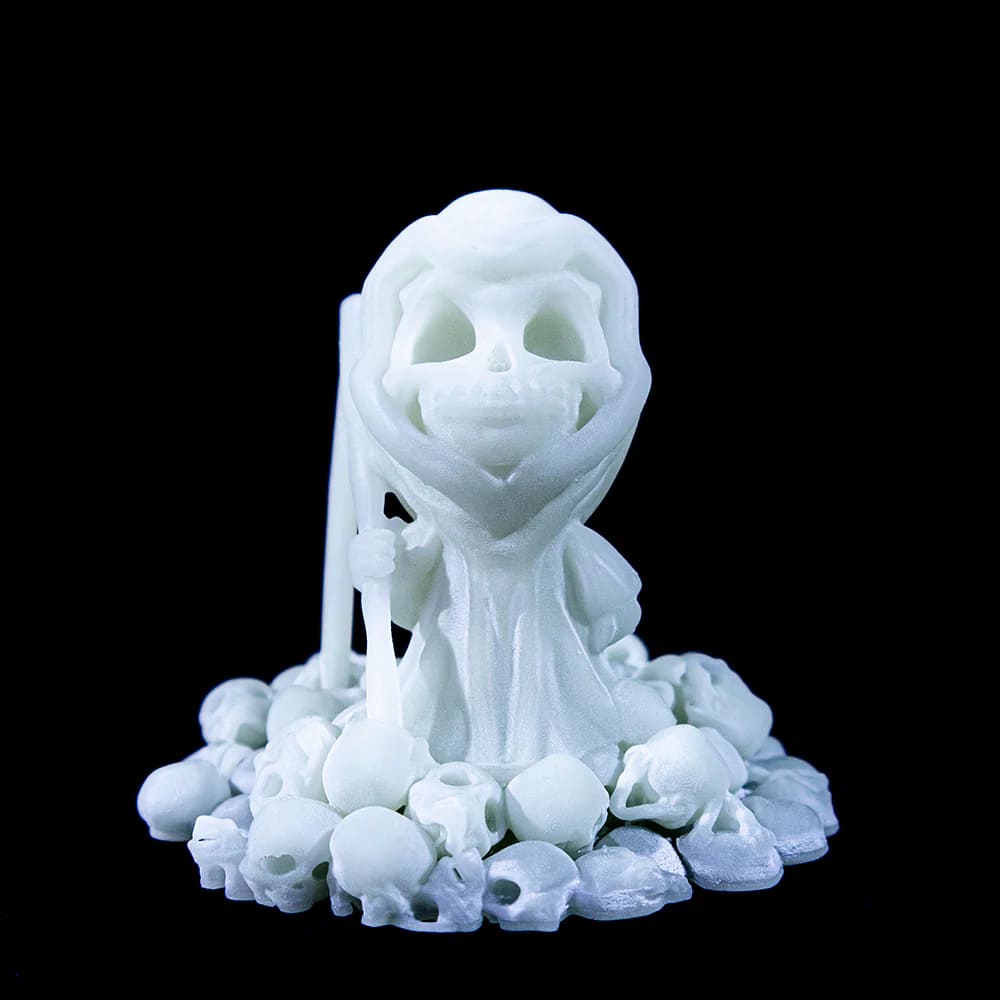
Image Source: Monocure 3D
Glow in the Dark UV Resin Properties
1. Phosphorescent Mechanism
Glow-in-the-dark resin relies on phosphorescence. The embedded phosphorescent particles (commonly strontium aluminate or zinc sulfide) absorb and store energy from light sources (natural or artificial). After the light is removed, these particles slowly release stored energy as visible light.
2. Glow Duration and Intensity
The glow can persist for 2–8 hours, depending on the phosphor concentration and light exposure time. Charging the object under bright light (e.g., sunlight or UV lamps) maximizes performance. Green-emitting resins are the brightest due to human eye sensitivity to green wavelengths. Other colors (blue, red, yellow) are available but may glow less intensely or for shorter durations.
3. Material Composition
• Photopolymer Base: A liquid resin that cures into a rigid or flexible solid under UV light.
• Phosphor Particles: Fine powders mixed into the resin. Smaller particles yield smoother prints but may reduce glow strength, while larger particles enhance luminosity at the cost of surface texture.
• Opacity: Often slightly opaque or translucent to allow light penetration for charging the phosphors.
4. Surface Finish
Phosphor particles may create a slightly grainy texture. Sanding or clear-coating can enhance smoothness.
5. Strength
It is comparable to standard resins but may be slightly more brittle due to particle inclusion. It is ideal for decorative pieces rather than high-stress mechanical parts.
6. Temperature Resistance
Similar to regular resins (typically up to 50–80°C), but prolonged heat exposure can degrade the phosphors.
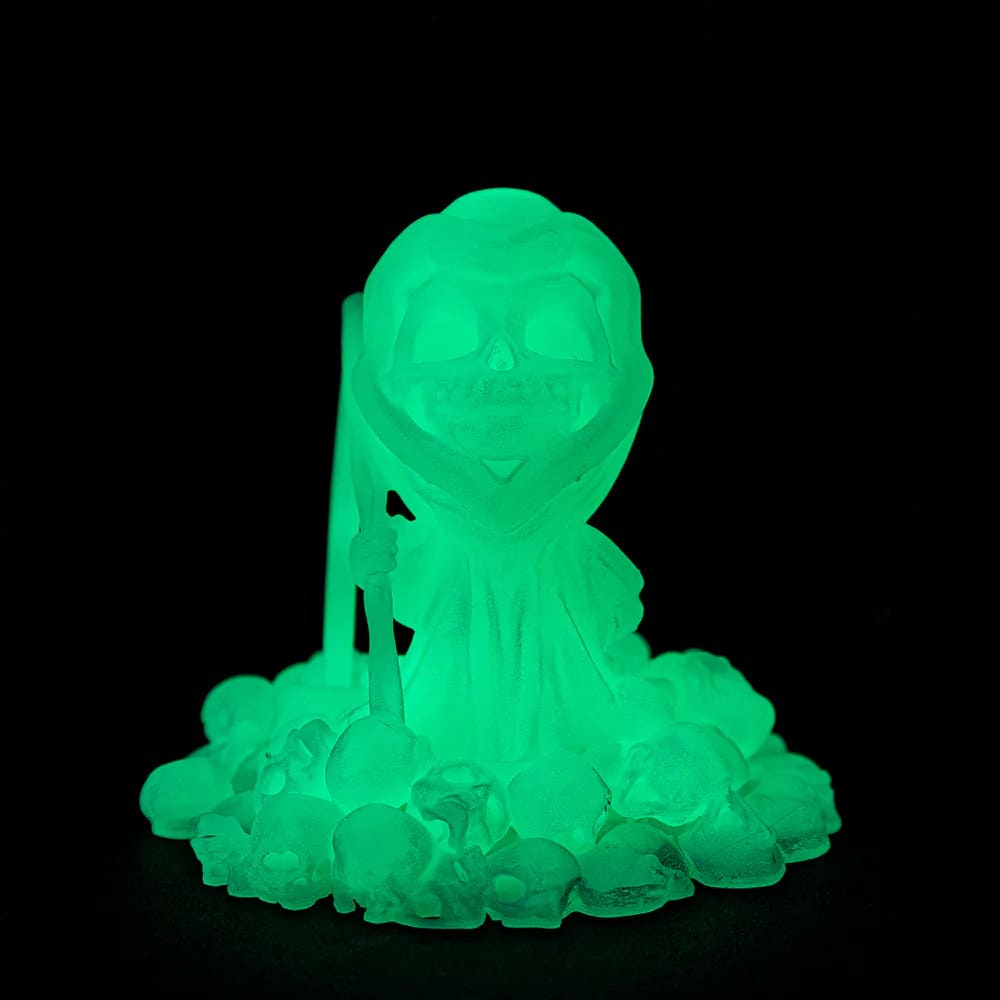
Image Source: Monocure 3D
How to work with glow in the dark UV resin?
Print Compatibility and Settings
• Printer Compatibility: Works with most SLA/DLP printers, but phosphors can absorb UV light, requiring adjusted settings (e.g., 10–30% longer exposure times per layer).
• Layer Thickness: Best results with layers between 25 to 100 microns. Thinner layers improve detail but increase print time.
• Post-Curing: Requires thorough UV post-curing to achieve full strength and stability, as residual uncured resin can weaken the print.
Safety and Handling
• Uncured Resin: Toxic and requires gloves, eye protection, and ventilation during handling.
• Phosphor Safety: Non-toxic once fully cured, but inhalation of loose particles during printing should be avoided.
• Storage: Store in a cool, dark place to prevent premature curing. Mix well before use to redistribute settled particles.
Best Glow in the Dark UV Resin of 2025
1. Monocure 3D PRO Glow in the Dark Resin
Monocure3D’s PRO Glow in the Dark Resin is a premium photopolymer designed for UV-based 3D printing (SLA/DLP). It offers a striking phosphorescent glow that lasts up to 12 hours after exposure to light. Formulated with strontium aluminate particles, it ensures uniform luminosity without settling during extended prints and supports layer heights from 10–100 microns for versatile applications.
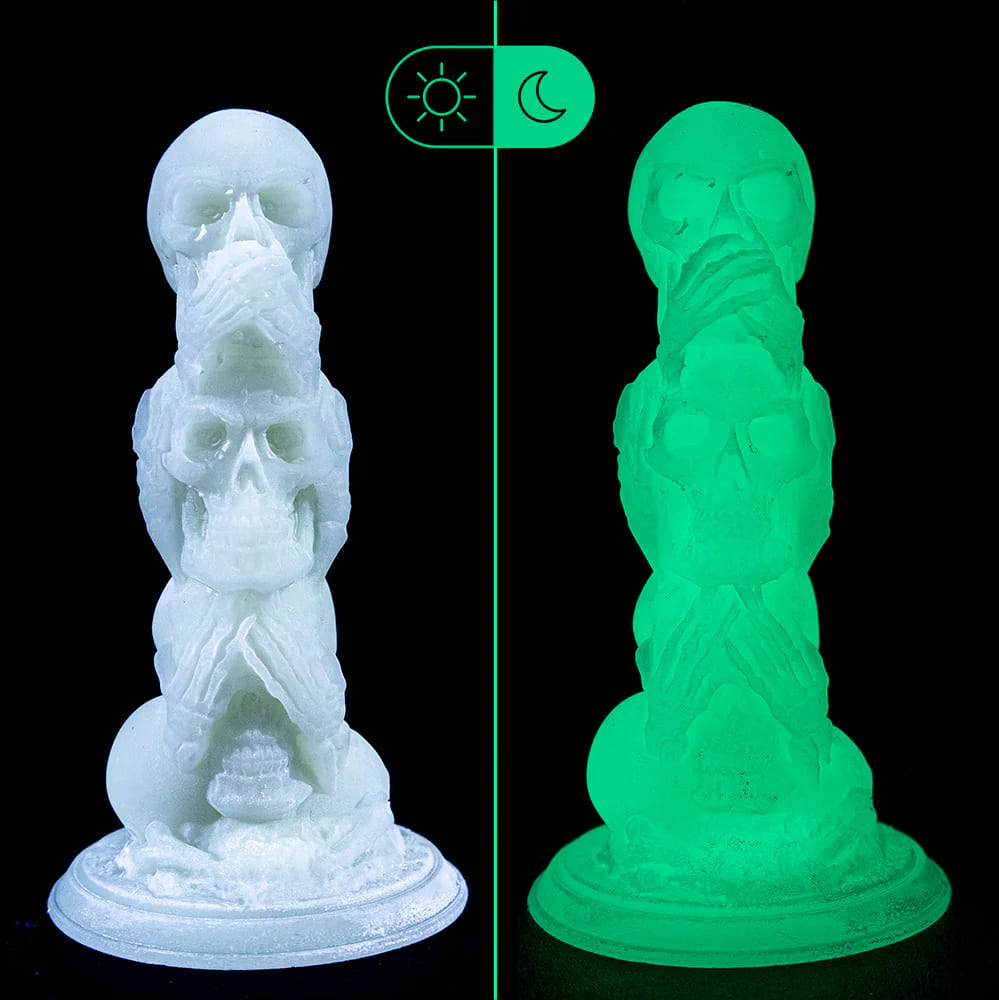
Image Source: Monocure 3D
2. GratKit Glow in the Dark Resin
GratKit's Glow in the Dark Resin empowers your 3D printing projects with captivating luminescence. It is perfect for creating objects that shine brilliantly in low-light conditions. This resin charges under standard lighting. Designs featuring intricate patterns or thinner walls can maximize this effect.

Image Source: GratKit
Liqcreate Hazard Glow is a pioneering glow-in-the-dark resin compatible with SLA, DLP, and MSLA 3D printers operating at 385–405nm. Engineered for maximum luminescence, it activates under various light sources, including UV light, sunlight, or even a smartphone flashlight. Its vibrant green glow makes it ideal for diverse 3D printed creations that stand out in darkness.

Image Source: Liqcreate
COMMENTS
- Be the first to share your thoughts!












